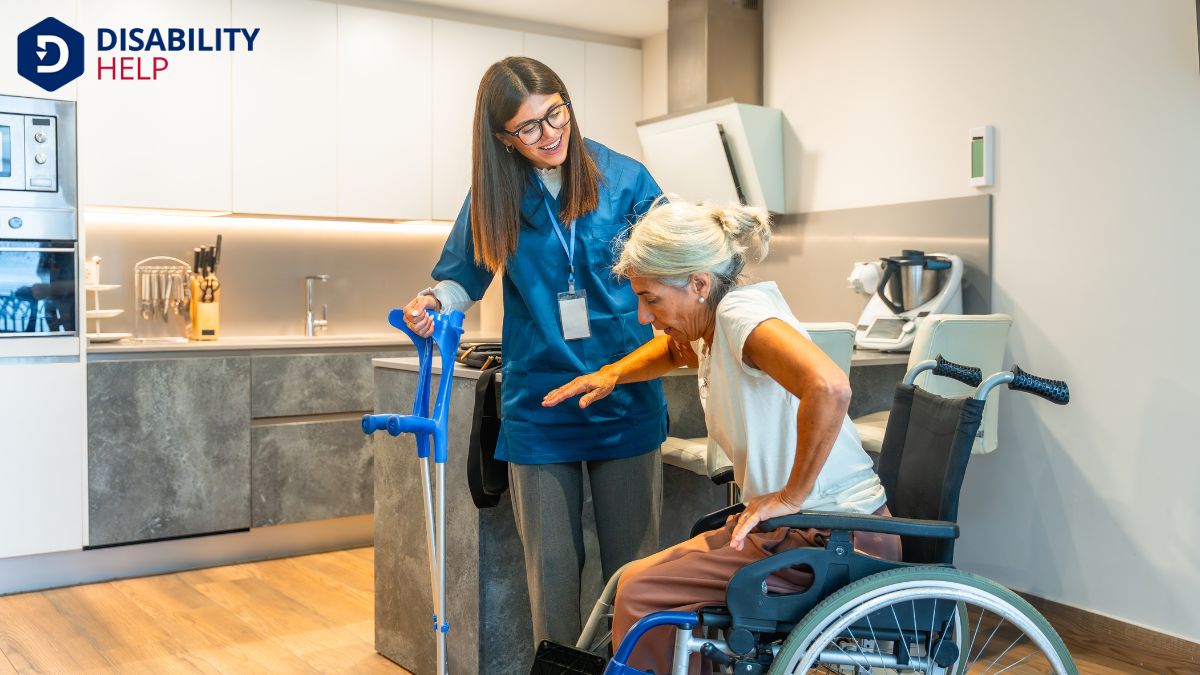When considering supported living, you’ll need to evaluate several factors, including medical conditions, personal circumstances, and financial status. Understanding these qualifications can feel overwhelming, but it’s essential for accessing the right support. You might wonder if your situation aligns with the criteria or if there are other options available. Before making decisions, you’ll want to explore what makes you eligible and how you can navigate the application process effectively.
Key Takeaways
- Eligibility often requires specific medical conditions, such as chronic illnesses or physical disabilities.
- Intellectual or developmental disabilities benefit from personalized care plans, qualifying individuals for supported living.
- Applicants must meet financial criteria, including income and asset limits, for support eligibility.
- Personal circumstances, such as daily living skills, assess the level of assistance needed.
- Necessary documentation, like medical records and proof of income, is crucial for the application process.
Understanding Supported Living Services

When you're exploring supported living servicesServices that provide individuals with disabilities the support they need to live independently in t..., it’s essential to grasp what they entail and how they can benefit individuals with varying needs.
These services provide tailored assistance, allowing individuals to live independently while receiving necessary support. You’ll find that supported living focuses on empowering individuals to make their own choices and maintain a high quality of life.
Support can range from help with daily activities like cooking and cleaning to assistance managing finances or accessing community resources.
It’s all about creating a personalized plan that suits the person’s unique needs and preferences. You’re not just looking at a one-size-fits-all solution; supported living is about adapting to each individual’s lifestyle.
This approach fosters independence and encourages personal growth, making life more fulfilling.
Medical Conditions and Disabilities
Although it might seem intimidating at first, understanding how medical conditions and disabilities factor into supported living services is essential. These services are designed to help you maintain independence while receiving necessary care. Your eligibility often depends on specific medical conditions or disabilities.
Here are some factors to evaluate:
- Chronic Illnesses: Conditions like diabetesA chronic condition where the body cannot produce or properly use insulin, leading to high blood sug... or heart disease may require regular medical attention and assistance with daily tasks.
- Physical Disabilities: Mobility issues, such as those resulting from spinal injuries, often necessitate modifications to your living environment or assistance with transportation.
- Intellectual or Developmental Disabilities: These may include conditions like autism or Down syndromeA genetic disorder caused by an extra chromosome 21, leading to developmental and intellectual delay..., where support can enhance your quality of life through personalized care plans.
Understanding these aspects helps you make informed decisions about your needs.
Personal Circumstances and Life Skills
When you're focusing on supported living, evaluating your personal needs is essential to creating a tailored plan that works for you.
Developing a daily routine can help you stay organized and guarantee that your fundamental tasks are completed efficiently.
Additionally, managing your finances independently is a significant skill that will empower you to make informed decisions about your spending and savings.
Assessing Personal Needs
Understanding an individual's personal circumstances and life skills is essential in evaluating their personal needs for supported living. You should consider various factors to guarantee that the support provided is appropriate and effective.
Evaluating personal needs involves identifying the specific areas where assistance is required. Start by reviewing your daily living skills and how they impact your independence.
Consider the following:
- Health and Well-being: Are there medical or mental health needs that require regular attention?
- Financial Management: Can you manage your finances independently, or do you need help with budgeting?
- Social Connections: Do you have a support network, or is there a need to develop one?
Developing Daily Routine
Having assessed personal needs, it's time to focus on developing a daily routine tailored to your circumstances and life skills.
Establishing a consistent routine helps create structure and predictability, making daily tasks more manageable. Start by identifying key activities like meals, hygiene, and household chores. Prioritize them based on your specific needs and abilities.
Use a planner or digital calendar to keep track of your schedule, ensuring you allocate enough time for each task. Break larger tasks into smaller steps to make them less overwhelming. Incorporate reminders and cues to maintain consistency.
Managing Finances Independently
While managing finances independently can seem challenging, breaking it down into manageable steps can make it less intimidating. The key is to start with a clear understanding of your income and expenses.
Begin by tracking your spending to identify patterns and areas for improvement. It’s also essential to establish a budget that reflects your priorities and needs. Don’t forget to set aside savings for unexpected expenses.
Here are some tips to help you on your financial journey:
- Create a budget: Allocate funds for necessities before discretionary spending.
- Track expenses: Use apps or spreadsheets to keep an eye on where your money goes.
- Set financial goals: Decide what you want to achieve financially and plan accordingly.
Financial Eligibility and Funding Options
To determine if you're eligible for financial support in supported living, it’s important to explore various funding options available.
First, research government assistance programs like MedicaidA U.S. government program that provides health coverage to eligible low-income individuals, includin... or Social Security Income (SSI), as they often provide financial aid for eligible individuals. Each program has specific income and asset limits, so make sure you meet these requirements before applying.
Additionally, consider state-specific programs that might offer further support.
Don't forget to check if local non-profit organizations provide grants or subsidies for supported living costs.
It’s vital to gather necessary documentation, such as proof of income and residency, to streamline the application process.
Assessing the Level of Required Support
When you're evaluating the level of support someone needs, start by assessing their daily living requirements.
Consider how independently they can manage tasks like cooking, cleaning, and personal care. This helps you determine the appropriate support to foster their independence while ensuring their safety and well-being.
Evaluating Daily Living Needs
How do you determine the right level of support for daily living needs? Start by evaluating specific tasks and challenges.
Consider how you handle daily activities and where assistance might be necessary. Effective evaluation involves understanding your strengths and identifying areas needing support.
Focus on these key areas:
- Personal Care Tasks: Examine your ability to manage hygiene, dressing, and grooming independently.
- Household Management: Assess your capacity to handle cooking, cleaning, and maintaining a safe home environment.
- Community Engagement: Look at how well you navigate transportation, shopping, and participating in social activities.
Determining Independence Levels
Building upon your evaluation of daily living needs, determining your level of independence involves a closer look at the support required to navigate everyday tasks.
You’ll want to reflect on how much assistance you need with personal care, managing medications, or preparing meals. Ask yourself if you can handle household chores or if balancing a budget feels overwhelming.
Don’t forget to assess your ability to communicate effectively and move around safely. Think about whether you can manage transportation independently or if you rely on others.
Recognizing these aspects helps you understand the kind of support you might need. It’s crucial to be honest about your capabilities and limitations.
This self-assessment guarantees you find the right balance between independence and necessary assistance.
The Role of Social Services and Case Managers
While steering supported living options, the role of social services and case managers becomes essential in guaranteeing clients receive the proper care and resources.
They guide you through the complexities of supported living, advocating for your needs. With their expertise, they assess your situation, identifying the level of support you require. They also connect you to relevant services, allowing you to live as independently as possible.
Social services and case managers are responsible for:
- Coordinating Care: They collaborate with healthcare providers and community resources to guarantee you receive thorough support.
- Monitoring Progress: Regular check-ins help them adjust your support plan as your needs evolve.
- Providing AdvocacyThe act of arguing in favor of, supporting, or defending the rights and interests of individuals or ...: They stand by you, ensuring your voice is heard and respected in decision-making processes.
Their involvement is pivotal in your supported living journey.
Application Process and Documentation
Steering the world of supported living requires more than just guidance from social services and case managers; it demands a clear understanding of the application process and the necessary documentation.
First, gather your essential documents, such as identification, medical records, and proof of income. These form the backbone of your application.
Next, fill out the application form thoroughly, ensuring every detail is accurate. Incomplete or incorrect information can delay your approval. You might also need a letter from a healthcare professional to verify your needs.
Keep copies of everything you submit for your records.
Finally, prepare for a possible interview or assessment, where you'll discuss your needs and preferences. Staying organized and proactive will streamline this process and enhance your chances of success.
Exploring Alternative Living Arrangements

When considering supported living, it’s crucial to explore alternative living arrangements to find what suits your needs best. You might discover various options that align with your lifestyle and preferences.
Start by evaluating the level of support you require daily. Some alternatives may offer more independence, while others provide extensive care. To make an informed decision, consider:
- Shared Housing: Live with others in similar situations and share responsibilities to reduce costs.
- Co-Housing Communities: Join a community where residents actively participate in managing shared spaces and resources.
- Assisted Living Facilities: Opt for a structured environment with professional staff available to support your needs.
Evaluate each option carefully, considering your personal goals, financial situation, and long-term plans.
This detailed exploration will guide you toward the best living arrangement for your future.
Conclusion
To qualify for supported living, you'll need to demonstrate medical conditions or disabilities that require assistance, show that you need help with daily tasks, and meet specific financial criteria. Social services and case managers play an essential role in evaluating your needs and guiding you through the application process. Be prepared with necessary documentation and explore alternative living arrangements if needed. By understanding these requirements, you can secure the support that's right for you.






